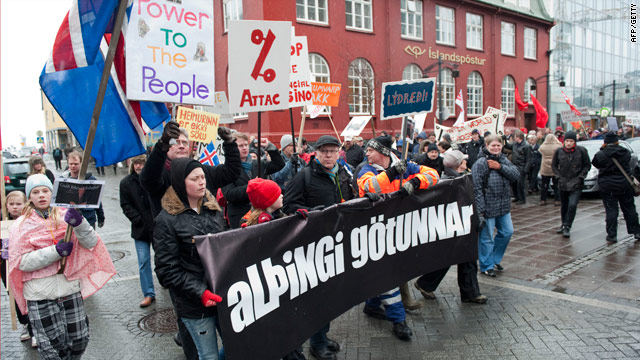Democrat September-October 2013 (Number 137)
Iceland formally abandons talks
on joining the EU

The Icelandic government has dissolved its EU accession team after deciding to give up talks on joining the Union. Iceland launched its EU membership application after suffering a financial meltdown in 2009, but the country's economy later recovered, and public opinion turned against the idea.
For its part, the EU Commission had nurtured hopes that Iceland's new government might change its mind. In July the president of the Commission, José Manuel Barroso, said the door was still open but added that "the clock is ticking."
The main sticking-point in EU relations is fisheries. Iceland has insisted on keeping high mackerel quotas, amid EU threats to impose trade sanctions. Iceland has unilaterally issued a quota of 123,000 tonnes of mackerel for this year, and demands a 17per cent share of the EU total catch. During a visit to Brussels in July the prime minister said the EU should try to replenish its fish stocks instead of pressing Iceland to catch fewer fish.
He offered "assistance" on replenishment and urged EU countries to base their arguments on "science," saying that more fish are migrating northwards because of warmer seas.
On the broader front, there is a sense that Iceland is back from the economic brink. The country's outsize banking system fell apart in the financial crisis in such dramatic style that the country became synonymous with banking excess and economic collapse. Other countries experienced similar failures, but Iceland's size and position outside the euro zone meant it had less external help and allowed its banks to fail instead of bailing them out.
The state's inability to bail out investors led to sticky moments, with the British government of Gordon Brown using anti-terrorism legislation to take action against Icelandic-owned banks in Britain.
It looked like a disaster at the time, and was indeed a very painful recession—but in fact it meant that the Icelandic government was less encumbered with debts than those of Ireland, Greece, or even Britain; and it has been able to bounce back rapidly.
(People's Movement News - Ireland)